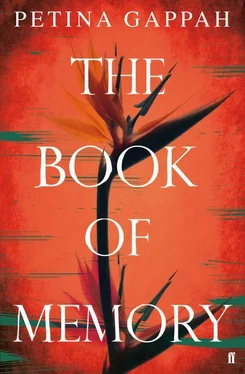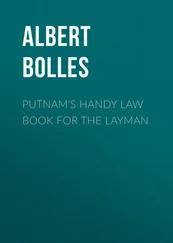But it is not only Jimmy with her little education who believes in witchcraft. Even Verity Gutu, smooth, urbane, Zurich— Harare-hopping with a stop in Dubai, believes in the power of a n’anga from Malawi called SekuruMuchawa, who specialises in restoring stolen property. If anything goes missing, she believes, like when her car was stolen, SekuruMuchawa flicks a whisk, asks, ndiani aba mota, ndiani aba mota, and rattles some bones, and just like that he restores your lost property, or, at the very least, he tells you who stole it.
I do not believe in any of those things, at least not any more. I had those beliefs once, too, but I was a child then. I believed in the haunted house on Mharapara. I also believed in the God of Sister Gilberta and Sister Mary Gabriel, the God of incense and Mass and the Benediction and the Trinity.
It has been the work of many years, but I no longer believe in anything. That these beliefs can shape a human life is horrible to me. It frightens me how much something like this can change a life. One minute there are four children, James and Lydia, Cecelia and Boniface, and the next they are just gone.
I no longer believe, but sometimes I find myself envying those who do, just as I envy Synodia’s certain assurance that there is hellfire waiting for all of us prisoners. How much easier must it be to navigate a Manichean world in which black and white are so starkly marked.
But for the most part, I am glad that my life has not been touched to this extent, that I left superstition behind with the dust of Mufakose. I am glad that my life has been untouched by this, as it is untouched by that other belief, that there is heaven and a hell in which, in the words of one of Synodia’s songs, we sinners shall gather and stand at the throne of the Lord, weeping for the kingdom we have lost, after the people of the Lord have gone away.

If I am to tell you the truth, Melinda, I had not expected that I would enjoy this. I am enjoying these words, crafting sentences, seeing paragraphs form. I am well into the first notebook already, but I already feel like I could write all day, and every day.
Vernah sent a message last week to say that my appeal has been set down for the end of July, which is when the judicial year begins. That means that I have five months to complete this. But it is all confusion at the moment because, before the opening of the courts, there is the election.
Vernah is convinced that things will really change this time and that the opposition will not only win, but will actually be allowed to take power. But that’s what we thought in the last election, too, and in the one before that one. I am not pinning all my hopes on anything that might happen after the election. Even if there is an amnesty, Vernah has explained that it does not apply to death row prisoners.
I am writing this for you and for Vernah, for the appeal, as she told me to, but I am also writing it for myself. Around the time that Lloyd and I met Zenzo, I was in a Stephen King phase, gulping down stories about rabid dogs, pyrotechnic children, telekinetic aliens and demonic cars. My favourite then was a book about a writer who was forced to write a novel by the deranged fan who held him prisoner as her own modern-day Scheherazade. But in the end, he wrote to keep himself alive.
That is the sense that these notebooks have given me. It is the best part of my day when I can go back to my cell and write. Scheherazade told stories to keep her head where it rightfully belonged. I am writing to keep myself alive. But I am also laying out the threads that have pulled my life together, to see just where this one connects with that one or crosses with the other, to see how they form the tapestry from which I will stand back to get a better view.
But, as it turns out, writing this is not as simple as I had imagined. I had thought that when I sat down to write, it would be to tell a linear story with a proper beginning, an ending and a middle.
I did not realise the extent to which my current reality and random memories would intrude into this narrative. I do not flatter myself that I am writing in the tradition of the prison diary. There is an imprisoned writer who wrote a whole diary on tissue paper. I can’t recall whether it was Wole Soyinka, Ngugi wa Thiong’o or Albie Sachs, or all three.
This would have been in the sixties, or seventies, perhaps; before the invention of three-ply tissue paper. The tissue must have been particularly tough to withstand all that ink. I wonder how many rolls he used. How did he get it out? And who transcribed it afterwards, unrolling roll after roll?
Loveness allowed me write in my cell without me asking. She continues to make these unexpected overtures to me. She talks constantly of her life outside these gates. I have generally met her overtures with silence, but that has not stopped her talking.
Her conversation is so dull that she makes the option of gazing at the grey concrete walls of my cell seem wildly attractive. When I stare at the wall, my mind is free to wander where it pleases. With Loveness, my mind cannot stray. She can spend more than thirty minutes just talking about groceries; telling me that it is better to buy bread from this supermarket than from that one, because the bread from that supermarket does not last as long. Toothpaste is more expensive in the supermarket with expensive bread, but washing powder is more expensive in both so it is best to buy from yet a third.
More than anything, she talks about her daughter. She has talked enough about her that some of the details have seeped through and stuck. I know that her daughter is called Yeukai, and she is in primary school. I would know this even if she hadn’t told me because I iron her school uniforms every week. I know that she has some sort of illness that Loveness is vague about.
‘Yeukai is having problems at school, such problems.’
‘There are no teachers at all.’
‘They have been on strike for three weeks, and the only time they teach is when you pay for extra lessons.’
‘You need six million a month these days, just to survive.’
‘I am going to South Africa month-end to buy clothes, weaves and hair extensions to sell on. This time I will buy lots of blonde weaves. It is not just loose women who wear weaves now, even the very yellow ones. Even proper women, like Synodia, women who go to church and who have husbands, like to wear them now.’
I pricked up a little at this: so it is Loveness who sells Synodia the raw material for her extraordinary coiffures. She has hairstyles like none that I have ever seen. All her hairstyles are named after celebrities. ‘This one is a Naomi Campbell,’ Synodia said once, as Patience, Mathilda and Loveness crowded around her.
Evernice, ever ready to curry favour, crowed about how good she looked. ‘Ende makafitwa ,’ she cried.
All I can say is that the short-fringed blue-black bob may have been de rigueur as Naomi strode down the catwalks of Milan and Paris, but on top of a round-faced, short-necked woman straining in her prison uniform, it looked more like a very small mushroom atop an unusually bulbous stalk.
‘And this one is a Rihanna,’ she said a month later.
I can assure you that there is nothing more menacing than a prison guard glaring at you out of one eye while the other is hidden, Veronica Lake-style, by a mane of flaming red plastic hair with gold highlights. The ghostly presence from The Grudge , all sodden hair and wild white eyes, had nothing on Synodia in the Rihanna.
But back to Loveness. In the week after she gave me the newspapers, she also brought me a tub of camphor cream. ‘I picked this out for you,’ she said as she handed over the green-and-white tub. ‘I thought better camphor than, what, than Vaseline.’
Читать дальше













